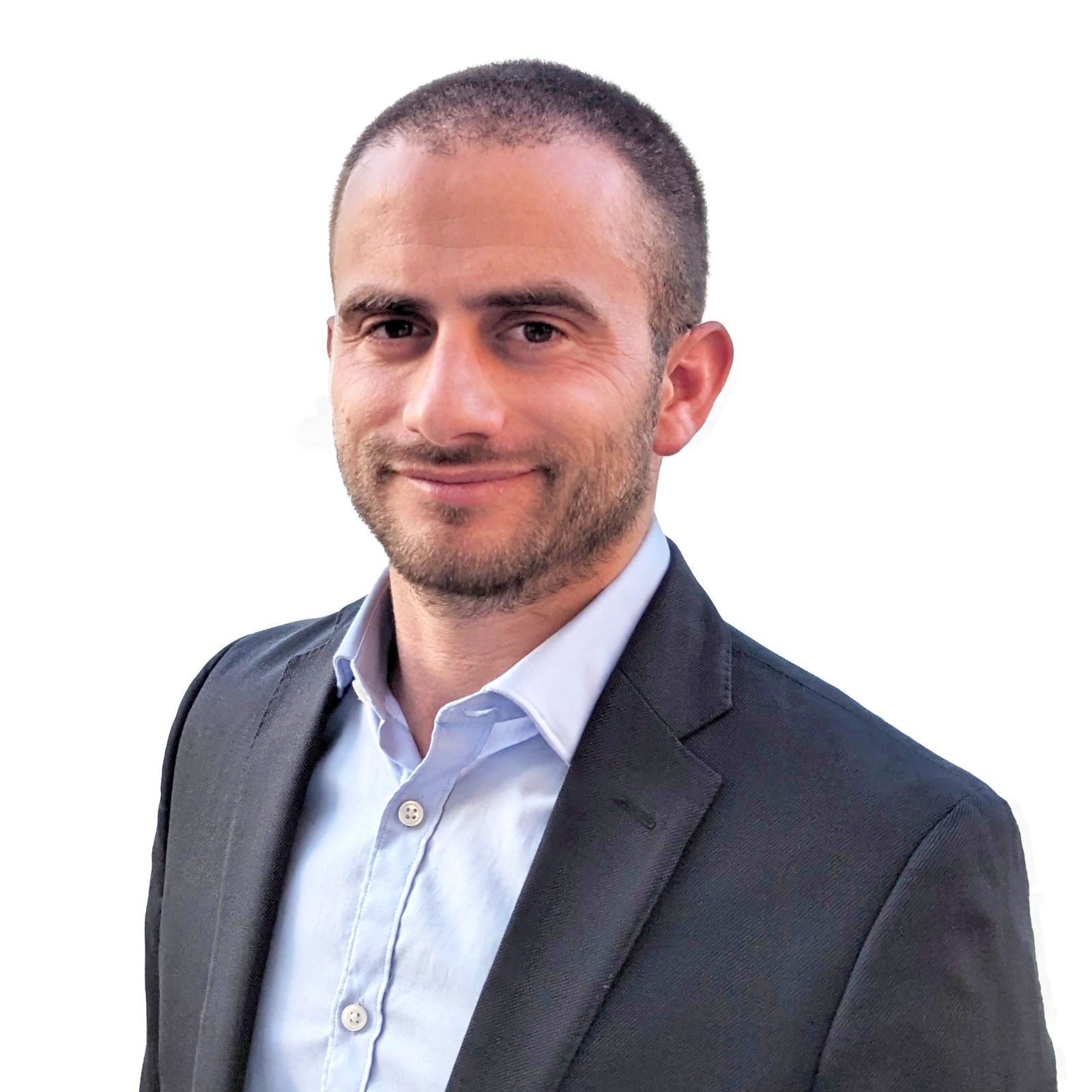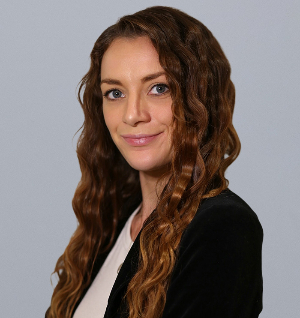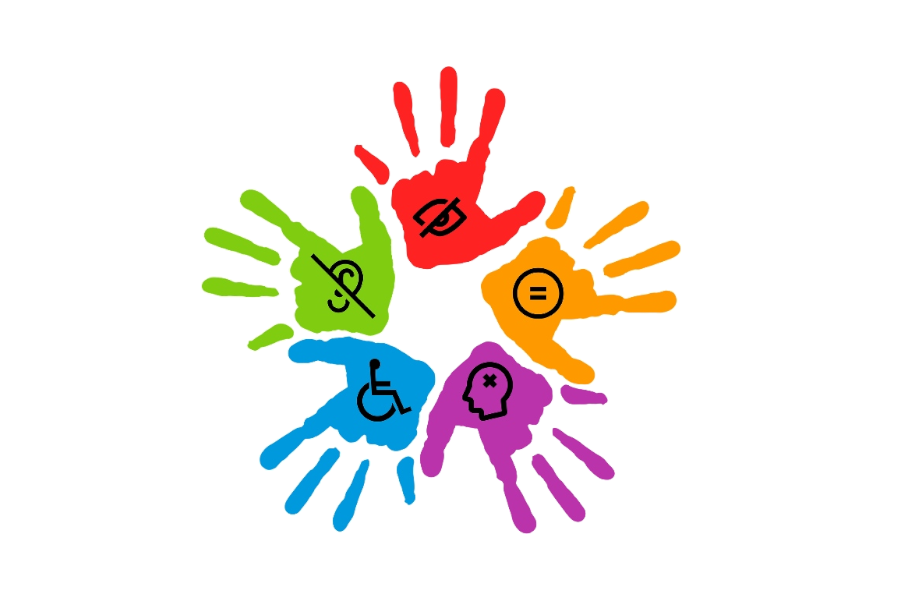Blog Article
Eitan Charnoff & Claire Machan
In a world that strives towards inclusivity and progress, it is concerning that the needs of one of the largest minority groups often remain unaddressed by prison and public services: people with disabilities.
The consequences of the global public safety spheres are far-reaching, touching every aspect of public services – corrections, law enforcement, fire, ambulance and health services, and the public safety policies associated with them.
There is an opportunity to take a more holistic view of these areas requiring improvement and create better services for people with disabilities – for good.
The prevalence of disabilities in prisons highlights the need for change
To tackle this issue, and improve outcomes for people with disabilities, we need to understand the scale and scope of the problem.
Research (Gonzalez et al., 2016) shows, for example, that prisoners with at least one type of disability have more criminogenic risk factors (increasing likelihood of recidivism) and come from more disadvantaged backgrounds than prisoners without disabilities.
Furthermore, in a recent US study, 66 percent of inmates self-reported a disability (Bixby et al, 2022), while the official number is around 40 percent, although this is in comparison to 15 percent in the general population (U.S. Bureau of Justice Statistics Survey, 2021).
Despite disparities in these statistics, all are representative of the profound frequency of disabilities within prison populations. Unfortunately, these disabilities often worsen within global prison systems due to the compounding impact of insufficient and inadequate healthcare assessments and services, as well as an overall lack of training and understanding in managing inmates with disabilities.
Public services responses to people with disabilities in emergency and disaster situations
This typifies the issues that exist across public services. The experiences of people with disabilities within public safety services can also often exacerbate any challenges they face in their daily lives. However, this doesn’t have to be the case. We can, and should, do more to ensure this minority group is better supported around the world.
Public safety, especially during emergencies, is a right that should be extended to all citizens. In particular, the unique needs of people with disabilities must be front and centre in emergency response protocols and planning.
Such oversight can be life-threatening, as illustrated by numerous cases where individuals with disabilities have faced significant barriers during emergency situations, such as a lack of accessible and inclusive preparation, planning, information, facilities and services.
Studies have repeatedly shown that those with disabilities are two to four times more likely to die or be critically injured during disaster situations (Rehabilitation International, the Nippon Foundation & UNESCAP, 2016).
Research conducted by the United Nations Office for Disaster Risk Reduction (UNISDR; 2014) indicates that only 10 percent of persons with disabilities believe that their local government has emergency, disaster management or risk reduction plans that address their access and functional needs, and only 20.6 percent reported they could independently evacuate in the event of an emergency or disaster.
Shortcomings in appropriate safety services for people with disabilities needs to be tackled head-on to ensure that these types of events are consigned to history. Improving inadequate and outdated data collection methods is an important place to start.
According to a wide range of non-governmental organisations, this represents a major blind spot when it comes to people with disabilities. This means that many individuals with disabilities are misclassified or overlooked, leading to a systematic lack of awareness about their position and unique needs when providing general or emergency services.
Comprehensive data, however, is not just a means of measurement, but key to understanding the scope of the issue and to directing appropriate resources effectively.
International experts have committed to tackling disability safety issues across sectors
Understanding the imperative to act, the Secure Communities Forum (SCF), a collaborative platform supported by the UAE Ministry of Interior, has brought together leaders, policymakers, and advocates to create a global working group to address public safety concerns for ‘People of Determination’ – the unique and uplifting term for people with disabilities used in the UAE. 1
The working group founding members include representatives from SCF, Innovative Prison Systems (IPS), The Arc, Singapore University of Social Sciences, UAE’s Zayed Higher Organization for People of Determination, University of Exeter, the Portuguese Guarda Nacional Republicana, and the Illinois Commission on Discrimination and Hate Crimes.
In its opening meeting in July 2023, the expert working group, for the benefit of policymakers and civil society, explored innovative strategies and best practices, collaborating to draft initial recommendations, which are relevant to public safety systems as a whole.
First and foremost, governments and policymakers need to create policies that actively include people of determination in their scope. This includes adequate healthcare provision within correctional and public safety spaces, including accessibility measures, and tailored emergency response plans.
Moreover, emergency services, global law enforcement agencies and prison directorates should receive specialised training to interact effectively and compassionately with individuals with disabilities.
By ensuring that those tasked with protecting and serving understand the unique challenges faced by this community, we can foster an environment of trust and cooperation.
Efforts to raise awareness and destigmatise disabilities should be ongoing, fostering a society that embraces diversity in all its forms. Additionally, governments, non-governmental organisations, and advocacy groups must be encouraged to collaborate in establishing standardised data collection methods that encompass disabilities comprehensively.
As one of the largest minority groups in the world, people with disabilities deserve better. Their needs and rights should not be compromised by systemic neglect, whether within prisons, during emergencies, or in their regular lives.
A just society is one that leaves no one behind, and addressing the unique challenges faced by people with disabilities is an essential step toward achieving that goal.
It is only through accurate data, informed policies, and concerted efforts, that we can gradually pave the way for a future where the marginalised are seen, heard, and supported by not just the criminal justice system, but public services as a whole. Only by shining a light on this hidden minority can we truly understand their needs and address them adequately.
The International Working Group on Public Safety and People of Determination, established by the Secure Communities Forum, are currently finalising a written set of expert-informed guidelines for increasing the safety of People of Determination.
These guidelines will aim to assist specific public safety services that interact regularly with people of determination, including law enforcement, corrections, emergency medical services, and disaster response.
The guidelines are to be shared publicly in an online webinar, for which it’s encouraged that both professionals and allied members of the public attend. Each nation has both the capacity and responsibility to improve safety and health outcomes for people of determination, and the proposed guidelines will lay out essential foundations on which to build future collaborative work in this area.
The working group further endeavours to continue establishing actionable ways to implement its developed guidelines, in turn leveraging empirical and community-informed policy changes.
It’s foreseen this will be accomplished via engaging with various public safety institutions on the topic, namely, to cultivate training, as well as host educational national and international seminars, and workshops as an inspirational platform for change.
Those interested in attending the upcoming guidelines webinar, or contributing to future working group activities, please feel free to contact the SCF at Secretariat@SC-Forum.org
1 In 2016 HH Sheikh Mohammed bin Rashid Al Maktoum introduced the term People of Determination to describe people who were formally called special needs as outlined in the Federal Law No. 29 of 2006, Concerning the Rights of People with Special Needs.
References
Bixby, L., Bevan, S., & Boen, C. (2022). The Links Between Disability, Incarceration, And Social Exclusion. Health Affairs (Project Hope), 41(10), 1460–1469. doi:10.1377/hlthaff.2022.00495
Gonzalez, R., Cannell, M. B., Jetelina, K. & Froehlich-Grobe, K. (2015). Disproportionate Prevalence Rate of Prisoners With Disabilities: Evidence From a Nationally Representative Sample. Journal of Disability Policy Studies, 27(10). doi: 1177/1044207315616809
Rehabilitation International, the Nippon Foundation & UNESCAP (2016). Disability-Inclusive Disaster Risk Reduction. Retrieved from: https://www.riglobal.org/disability-inclusive-disaster-risk-reduction/
UNISDR (2014). UNISDR 2013 Survey on Living with Disabilities and Disasters – Key Findings. Retrieved from: https://www.unisdr.org/2014/iddr/documents/2013DisabilitySurveryReport_030714.pdf
U.S. Bureau of Justice Statistics (2021). Survey of Prison Inmates, 2016: Disabilities Reported by Prisoners. NJC 252642. Retrieved from: https://bjs.ojp.gov/content/pub/pdf/drpspi16st.pdf

Eitan Charnoff is a seasoned public safety professional and advisor, bringing over a decade of operational experience in the United States and MENA region. With a background as a firefighter medic and USAR (Urban Search and Rescue) officer, Eitan has played a crucial role in emergency response efforts. Mr. Charnoff also serves as part of the Secretariat of the Secure Communities Forum, an initiative supported by the Ministry of Interior of the UAE, dedicated to promoting global dialogue on pressing universal public safety issues.

Claire Machan is the Portfolio Coordinator of Rehabilitation, Reintegration, and Community at Innovative Prison Systems (IPS) and was invited to the Secure Communities Forum as an expert representing IPS. Claire has a solid academic background in Criminology and Psychology areas and is is dedicated to applying psychological approaches to address global social, crime, and justice issues. Prior to joining IPS, she spent five years in the UK lecturing on Applied Forensic Psychology and conducting workshops with various organisations, including HMPPS staff, MET Police Officers, Victim Support, RJ Practitioners, and ex-offenders.


